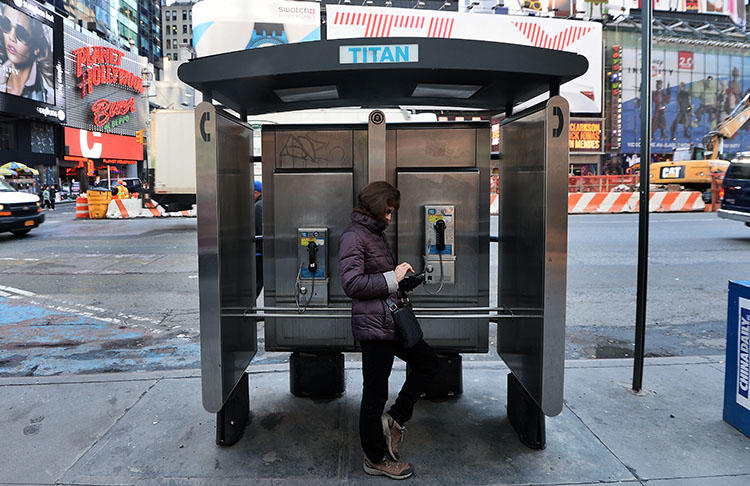At least 11 journalists at HuffPost, their families and others were harassed and threatened online in late May and early June 2018, Lydia Polgreen, editor in chief at HuffPost, told CPJ. The harassment came after the outlet published a piece written by reporter Luke O’Brien that identified the person behind a Twitter account that shares and tweets Islamophobic and anti-immigrant content.
O’Brien told CPJ on June 6, 2018 that he received thousands of threatening and harassing messages via phone and online, targeting him and his family. O’Brien added that his sources, three people who share his name and who live on the East Coast, 10 of his colleagues at the HuffPost, and some of their family members also received threatening messages.
Many of the people were doxxed, Polgreen said. Doxxing is a form of harassment in which personal information such as phone numbers and street addresses are released online.
As well as being doxxed, O’Brien said that he received images of guns with messages saying “Your time is come,” or mentioning his parents and their safety. The reporter said that from June 1 to 3, 2018, every 30 seconds his phone would buzz with a new voicemail. In one voicemail, shared with CPJ, an unidentified woman can be heard saying, “We might kill you, because we do that kind of thing.” In a second message, what appears to be the same woman says, “We’re going to take care of you one way or another. We’re going to teach you a lesson one way or another.”
The harassment began after O’Brien reported in May 2018 on Amy Mekelburg, the person behind a Twitter account that has over 231,000 followers and which shares right-wing and Islamophobic content.
O’Brien said he contacted Mekelburg for comment before publication, but when he did not initially receive a response he contacted some of her friends, her husband and husband’s then-employer. O’Brien said Mekelburg later directed him to a lawyer, but the lawyer told the journalist that he did not represent Mekelburg.
The HuffPost reported that Mekelburg posted a series of tweets on May 31, saying that O’Brien was harassing her and putting her and her family’s life at risk. She asked her supporters to contact the HuffPost and demand that it stop its reporter. The tweets–viewed by CPJ–said that O’Brien was harassing her family, despite her blocking him on social media.
Polgreen told CPJ that requesting comment from people mentioned in a report prior to publication is standard journalistic courtesy and a principle of journalism ethics. She added that it was in the public interest for the press to identify influential public figures who operate anonymously.
Mekelburg and many of her Twitter followers accused O’Brien on Twitter of doxxing Mekelburg, and of causing her husband to lose his job. The HuffPost, in an article responding to the threats its reporter received, denied that he shared her personal information, or that O’Brien had pushed for her husband to be fired.
During the harassment Twitter temporarily restricted O’Brien’s account on May 31, for allegedly encouraging one of Mekelburg’s supporters to self-harm, the HuffPost reported. O’Brien and HuffPost said that his tweet was taken out of context and denied he was inciting violence. His account was reinstated.
The harassment intensified on June 2, after a podcast named The Third Rail, which describes itself as “the alt-right’s cuddliest podcast” released an episode called “The Day of the Brick,” that mentioned O’Brien–saying that there would be “an information drop” on him and discussing Mekelburg’s claims of harassment. In the episode, which CPJ listened to, a presenter who uses the name Spectre, said he did not condone violence or illegal acts, but that he was “not going to be surprised if one day” journalists are killed on their way to work. On the same day the episode was made available, #DayOfTheBrick became a trending hashtag, with people on Twitter adopting it to advocate for attacking journalists with bricks.
Twitter suspended the account of Specter, which was used to dox O’Brien’s parents, O’Brien told CPJ.
O’Brien said that he reported the threats to the police. He said that the officer with whom he spoke said that the journalist needed to provide additional screenshots and recordings of the threats to the police before authorities could subpoena Twitter for copies of any tweets removed by the social media platform.
The journalist added that he reported the harassment to Twitter. A spokesperson from Twitter told CPJ that the company is taking the harassment of O’Brien and his family seriously. As of June 2018, Twitter had not responded to CPJ’s request for comment about what action it was taking in O’Brien’s case.
